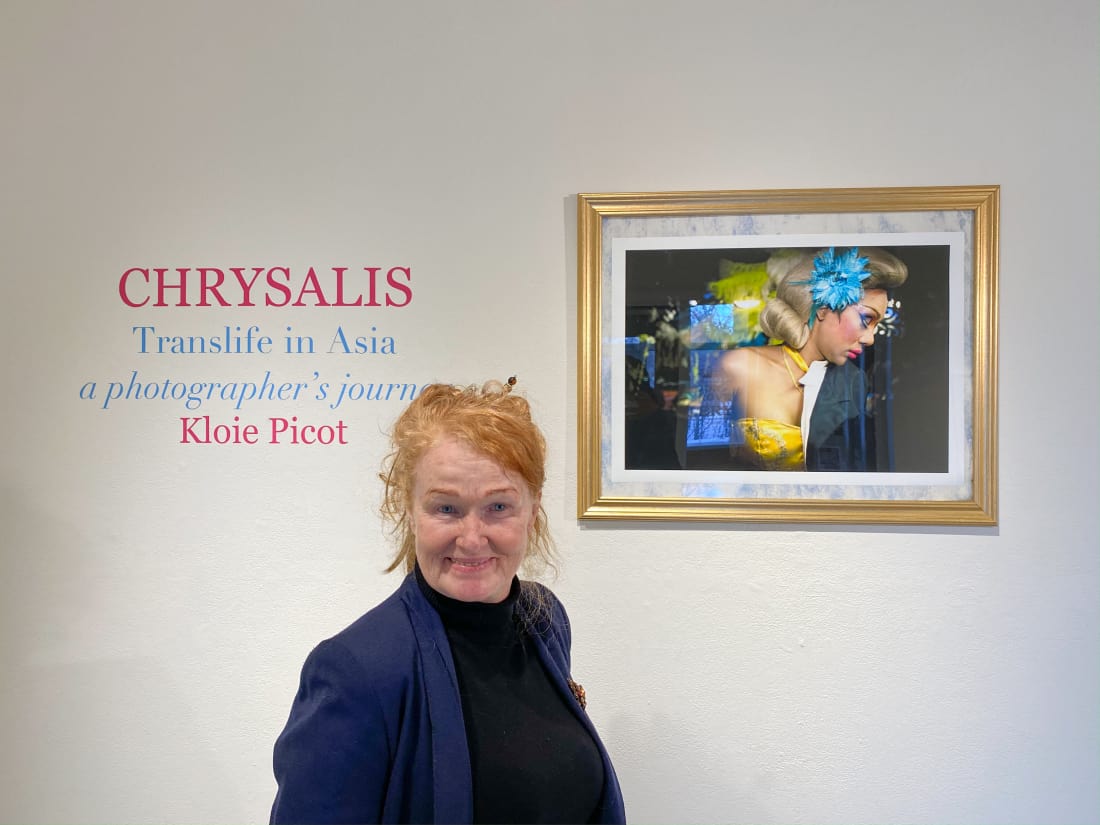
For Canadian photographer Kloie Picot, business and pleasure were always mixed.
“I’m not the kind of person who likes to just go to the beach on a vacation or just hang out. I’ve got too much nervous energy,” Picot said. “So I would always choose a project, research the project and then photograph the project while on my vacation.”
This sentiment has always been on Picot’s mind and did not waver as she travelled across Asia for many years. While perusing the different bars and clubs that the continent had to offer, the local trans communities and performers caught her eye.
After falling in love with the colours, shapes and forms, Picot decided to bring her camera to photograph the trans women cabarets. From there, she entered a unique world that she would spend years in.
This culminated in the photo gallery which she titled Translife in Asia: A Photographer’s Journey. The exhibit was on display at the Gordon Snelgrove Gallery from Jan. 20 to 24.
Originally, her work was just for the aesthetic of the shows: the bright colours, bold makeup and high energy of the performers made for eye-catching photos. But as she spent more time photographing the performers, she began to develop a “symbiotic relationship” with the people she was photographing. Eventually, this led her behind the scenes and allowed her to truly know the people intimately, and capture some of their most intimate moments.
An example of such a moment would be a photograph that Picot took of a trans woman showing her breast lactating — a side effect from the hormones she had been taking. Picot had no previous knowledge that trans women experienced such a thing. She was approached by the woman, and was asked if Picot “wanted to see something funny.”
“What I find is that everybody likes to tell their story because it makes them feel seen,” Picot said. “Especially when you’re a marginalized person and you see somebody who’s interested in you and isn’t doing it in an exploitative way — their interest is authentic and genuine.”
Picot met many transgender performers and sex workers while hearing their stories and capturing their lives. One story in particular that resonated with Picot was that of a sex worker she met in Malaysia who has been in the industry for around 30 years.
“Her story really hit home, and her authenticity and resilience inspired me to also be authentic and resilient,” Picot said.
Authenticity and curiosity are exactly what she hopes to inspire her audiences. She strives to show them that people are just people across borders and genders, that people always have the capacity to bounce back after tragedy.
“We just have to be careful of judging others because we don’t know what they’ve lived. We don’t know how they got there. And I’ve been in a war. I’ve photographed war, I’ve photographed really marginalized folk and really terrible situations, and people are resilient,” Picot said.
“And when you find people who are marginalized, or in war or homeless, they have their community, and it’s their community that keeps them together. That keeps them alive.”
In the future, Picot isn’t too certain where her camera will take her next.
“There are so many I’d like to look at too. My whole goal is to go back to the Middle East and work with children with trauma from war. So that’s kind of where I see myself going. So I need to learn more Arabic and that kind of thing. But for now, I just want to get this book together,” Picot said, referring to her written work on translife in Asia.
Wherever Picot ends up, she’ll always have a genuine interest in whoever is in front of the camera.
“The key to anything — as a photographer, as a traveler, as a student, as a teacher, as anything — is curiosity,” Picot said. “That’s the key that opens any door — being genuinely, authentically curious about someone else.”
Corrections 02/13/2020: In Feb 6. issue of the Sheaf, the article “Genuinely curious: Kloie Picot on her exhibit Translife in Asia” incorrectly referred to trans women cabarets as drag shows; they are trans women showgirls and therefore do not perform in drag shows. We apologize for these errors. If you spot any errors in this issue, please email them to copy@thesheaf.com for correction.
—
Gabriella Fourie
Photo: Tomilola Ojo/ Culture Editor
Leave a Reply